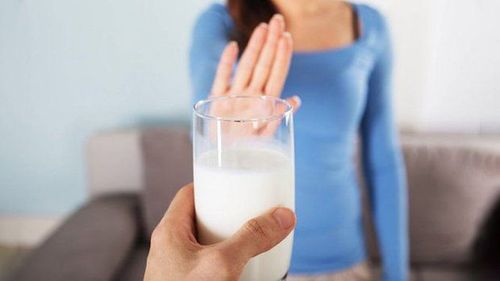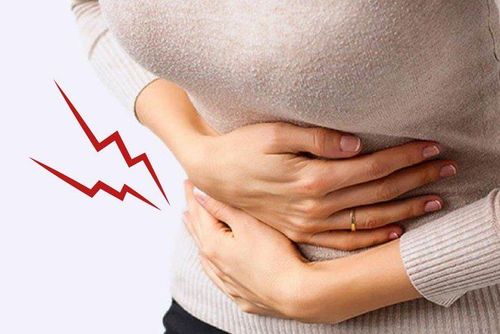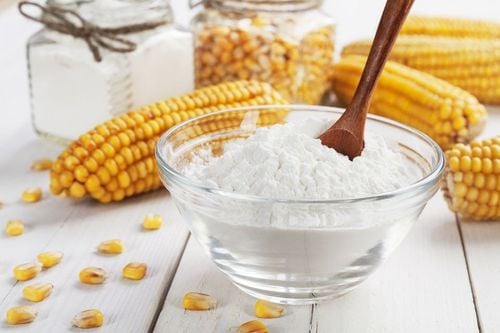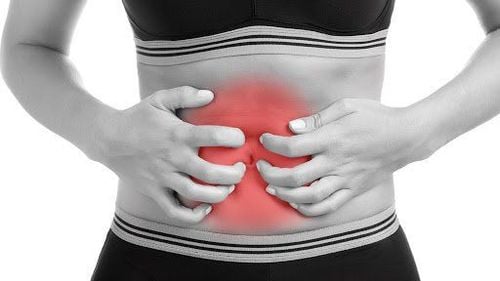This is an automatically translated article.
The article was professionally consulted by Doctor Department of Medical Examination & Internal Medicine - Vinmec Hai Phong International General Hospital.
Food intolerance, also known as non-IgE-mediated food hypersensitivity or non-allergic food hypersensitivity, is a condition when you have difficulty digesting certain foods. It is important to note that an intolerance is completely different from a food allergy. So what causes this food intolerance?
1. What is a food intolerance?
Many people confuse the two terms "food intolerance" and food allergy. Food intolerance, or food sensitivity, occurs when a person has difficulty digesting a particular food. This can lead to symptoms such as bloating in the intestines, abdominal pain, or diarrhea.
Food allergies activate the immune system, while food intolerances do not. Some people have digestive problems after eating certain foods, even though their immune systems haven't reacted yet - no histamine response. Foods linked to food intolerances include dairy products, gluten-containing grains, and foods that cause intestinal gas such as beans and cabbage.
MORE: What is the difference between food allergy and food intolerance?
2. Causes of Food Intolerance
There are many causes of food intolerance, including:
Lack of an enzyme: Enzymes are necessary to digest food. If certain enzymes are missing or not enough, the digestive process will be affected. Nearly all foods need an enzyme to help with good digestion. Enzyme deficiency is a common cause of food intolerance. People who are lactose intolerant do not have enough lactase, an enzyme that converts milk sugar (lactose) into smaller molecules that the body can absorb through the intestines. If lactose remains in the digestive tract, it can cause cramping, abdominal pain, bloating, and diarrhea. People with a milk protein allergy have similar symptoms to those with lactose intolerance; That's why lactose intolerance is often misdiagnosed with lactose allergy. Chemical Causes of Food Intolerance: Certain chemicals in foods and beverages can cause intolerances, including amines in some cheeses and caffeine in coffee, tea, and coffee. chocolate. Some people are more sensitive to these chemicals than others. Food Poisoning: Some foods contain natural chemicals that can be toxic to humans, causing diarrhea, nausea, and vomiting. Uncooked beans contain aflatoxins that can cause digestive problems, and fully cooked beans do not contain this toxin. Therefore, many people may wonder why they have a poor digestive response to beans after a meal and not with something else. Natural occurrence of histamine in some foods: Certain foods, such as fish that are not stored properly, can accumulate histamine as they rot. Some people are especially sensitive to this natural histamine and have skin rashes, abdominal cramps, diarrhea, vomiting, and nausea. Salicylates are found in many foods: Salicylate intolerance, also known as salicylate sensitivity, occurs when someone reacts to a normal intake of salicylate. Salicylates are derivatives of salicylic acid, which occur naturally in plants as a defense mechanism against harmful bacteria, fungi, insects and diseases. These chemicals are found in many foods, and most people can consume foods containing salicylate without any side effects. However, some people experience symptoms of indigestion after eating large amounts. People who are intolerant to salicylate should avoid foods containing high levels of this substance. Salicylates are found in most plant-based foods, including most fruits and vegetables, spices, herbs, teas, and flavoring additives. Aromas of mint, ketchup, berries and citrus fruits are particularly high. Foods prepared with flavoring additives are also often high in salicylates.

Some common food intolerances are: lactose, wheat, gluten, caffeine, histamines found in mushrooms, pickles and medicinal foods, additives such as artificial sweeteners, colors or flavors. .
Some people experience a reaction after eating bread, but this does not necessarily mean you have gluten intolerance. Anyone who suspects they may have a gluten intolerance should see a doctor before giving up gluten, as grains are a great source of many important nutrients.
MORE: What are food allergies and intolerances?
3. Symptoms of Food Intolerance
It can be difficult to determine if a patient has a food allergy or intolerance because the signs and symptoms often overlap. When it comes to allergies, even small amounts lead to symptoms, as is the case with peanut allergies.
Meanwhile, with a food intolerance, a small amount usually won't cause an effect. Compared to a food allergy, the symptoms of food intolerance usually take longer to appear. Onset usually occurs several hours after ingestion and may persist for several hours or days.
In some cases, symptoms can take 48 hours to appear. Here are the most common symptoms of food intolerance :
Bloating Migraine Headache Cough Runny nose Abdominal cramps Hives.

4. Treating Food Intolerance
To make a diagnosis, your doctor will ask about your medical history, the foods you eat, your symptoms, and may recommend some screening tests. You may also need to keep a detailed food and symptoms diary.
Your doctor may suggest a diet: You will stop eating the foods that are the most common intolerance triggers. As these foods are slowly introduced back into your diet, your doctor will monitor your symptoms so he can know which foods or additives you are sensitive to. Lactose intolerance is very common. To see if you have this condition, your doctor may ask you to eliminate dairy from your diet for a few weeks to see if you feel better.
Please dial HOTLINE for more information or register for an appointment HERE. Download MyVinmec app to make appointments faster and to manage your bookings easily.
Article reference source: webmd.com, medicalnewstoday.com













